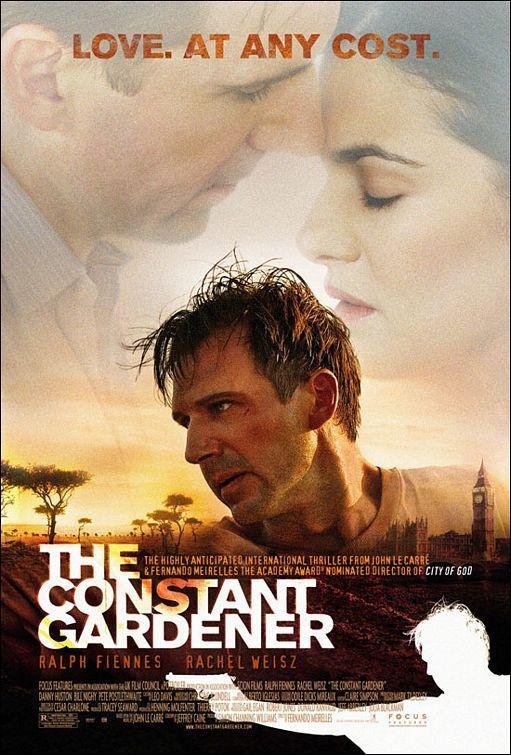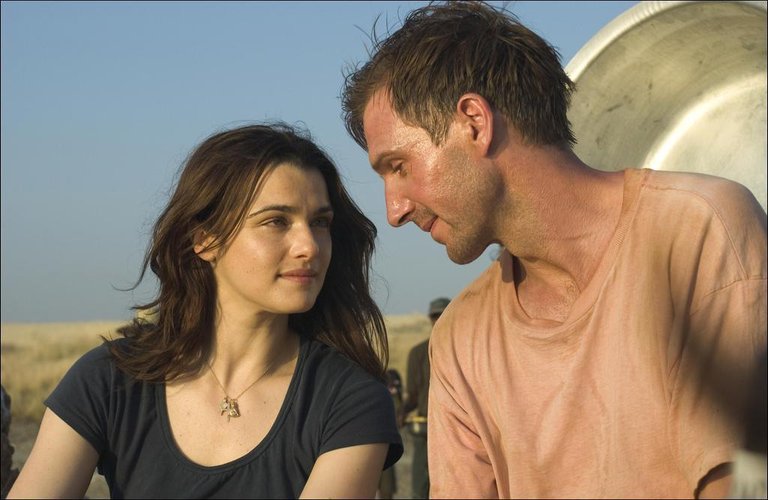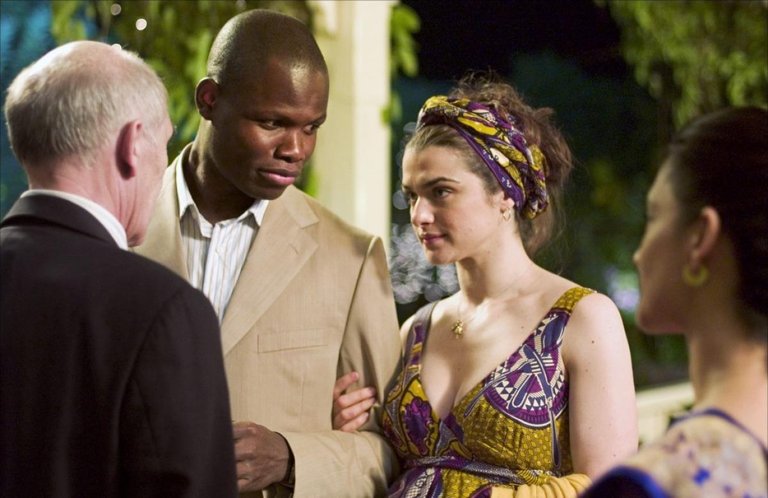Source

Courageous film, very critical, against the pharmaceutical companies, which it accuses, together with the arms dealers, of being the runners and slaughterers of Africans.
In a dialogue of the film it is said: “Pharmaceutical companies are on a par with arms dealers (...) This is how the world fucks Africa”.
In reality, the multinational drug companies are so powerful that they can sometimes do more than the States themselves, as has been demonstrated on many occasions throughout the 20th century; but above all, where these companies have their guinea pigs' preserve, par excellence, is on the African continent.
Source

It is there, in Africa, that many laboratory experiments are tested on poor, non-contestant populations. It is to Africa that tons of expired medicines, etc., are sent.
This is a film made by Fernando Meirelles with screenplay by Jeffrey Caine, who adapts the novel “The Constant Gardener” (2001), by John Le Carré.
Shot on location in Europe (Berlin and London) and Kenya and in studio, with a budget of $25M. Nominated for 4 Oscars, wins one (supporting actress-Weisz). Produced by Simon Channing Williams.
The action takes place in Kenya, Berlin and London, circa 1999/2000. Diplomat Justin Quayle (Fiennes), in his 40s, mild-mannered and fond of gardening, meets activist Tessa (Weisz), 25, spontaneous, brilliant and feisty, in London. Falling in love, they marry and move to Nairobi.
Source

The narrative unfolds in a fragmented manner, making frequent use of flashback. He emphasizes realism by incorporating sequences shot with a shoulder-mounted camera, with a documentary look and feel.
Both word, image and sound give rise to compositions of great beauty, to which are added contemplative framing of beautiful and spectacular natural landscapes.
The application of the play of light and color gives the images a pleasant and emotive pictorial air. In our opinion, the formal beauty of the story does not detract from either the conception or the contemplation of the background.
Fiennes' performance is sober and brilliant, Weisz's overflows vitality and naturalness and Denny Huston's (Sandy) stands out for its correctness.
The music, by the Spaniard Alberto Iglesias, based on aboriginal instruments and tribal songs (“Kijani Mwana Awali”), offers passages of great emotional intensity and exaltation of Africa, which invite meditation and reflection.
The cinematography, by César Charlone, uses spectacular aerial “trevellings”, deep framing of the whole, scenes with a television air and a singular chromaticism. Greens predominate in Justin's world (England) and intense reds in Tessa's (Africa).
this movie brings a very harsh reality that should be taken more seriously.
This movie touches on a pretty strong subject, I haven't seen it for that very reason, my heart is not taking any more injustice or other people's pain right now, but I know it's very good.